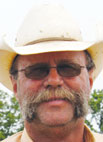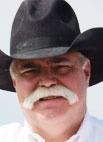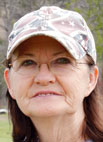Traditional Ways
If you’re looking for a traditional cattle operation with a little bit of uniqueness to it, look no further than Mt. Vernon, Ark. This is the home of Jerry Henry, his family, horses and cattle business.
Providing a Profit
John and Donna Fields had a dream 21 years ago; to someday own the many acres of countryside that John played and explored on as a child growing up. The couple moved back to Jay, Okla., from Alaska in 1990 and began taking steps toward their dream. Starting with only 40 acres, John and Donna worked daily to make that dream a reality. Today, that dream is the successful 550-acre farm, Bar Circle F Ranch.
Integration – A Good Thing
For Dr. Joan Burke, research animal scientist at the USDA Agricultural Research Service and Dale Bumpers Small Farms Research Center in Booneville, Ark., finding the answer to one question fueled them. The question – if chickens could break the parasite life cycle of Haemonchus contortus or Barberpole worm to lessen the infestation rate in the stomachs of sheep and goats?
Not Your Average
According to the U.S. Department of Agriculture, the average age of all U.S. principal farm operators in the 2002 Census was 55.3 years of age. Chrisie Schwerin Smith is swimming against that tide. An exceptional young lady, Chrisie is the future of agriculture in America today.
Silver Lining
Sometimes challenges create opportunities, and Eddie and Lorraine Kinzer of Kinzer Polled Herefords in Hogeye, Ark., this year took advantage of a challenging situation to improve the farm.
Preserving The Farm
Billie Warm lives on a small farm, which was originally a stage stop on old Cabin Mill Road near Mountain Home, Ark. When she and her husband, Tim, moved from Ava, Mo., she began by raising cows and horses. She now raises smaller animals, including sheep, goats and chickens. The sheep and goats are sold for meat and the chickens are raised for egg production.
A Better Way to Retirement
The word retirement means different things to different people. When Russ and Doris Breitenstein retired from Kansas City, Kansas to northern Arkansas, they probably never thought they’d be raising African Boer goats. But after they bought 16 acres just north of Green Forest, Ark., they decided to do something special with the land.
Poultry Playback
 A sign reading “Poultry – Past, Present and Future” should be displayed over the entrance to Hugh McClain’s office. Hugh, founder of McClain Farms, began working in the poultry business straight out of the armed services in 1959, in Marshall, Ark. From 1960 to 1964, he was a district manager for Cargill in northern Missouri, and in Iowa from 1965 to 1969. Then, Hugh moved back home to Mountain Home, Ark. With just a pickup truck, $4,000 and his furniture, he began his lifetime career as a poultry farmer. He rented two old chicken houses, converted them to turkey barns and got a loan from Purina to buy his first batch of poults and feed.
A sign reading “Poultry – Past, Present and Future” should be displayed over the entrance to Hugh McClain’s office. Hugh, founder of McClain Farms, began working in the poultry business straight out of the armed services in 1959, in Marshall, Ark. From 1960 to 1964, he was a district manager for Cargill in northern Missouri, and in Iowa from 1965 to 1969. Then, Hugh moved back home to Mountain Home, Ark. With just a pickup truck, $4,000 and his furniture, he began his lifetime career as a poultry farmer. He rented two old chicken houses, converted them to turkey barns and got a loan from Purina to buy his first batch of poults and feed.
Goat Fulfilled
The low inputs and the growing market for goat meat initially attracted Laurie Foucault and Clint Place of Ozone, Ark. to raise Boer goats. After researching the hardiness and market, Laurie decided that American Fullblood Boer and Boer crosses would be the best fit. “If you mix does as a dairy cross, your milk production is better which grows off your kids better,” Laurie explained. “Feed conversion was also a main reason,” she added later, “You can feed 10 head of goats to 1 head of cattle.”
Chicken Run
Twenty-five cows, 205 acres of land and a vegetable garden – That’s how the King family got by in the old days. Gerald King, patriarch of the King family of Green Forest, Ark., said, “I don’t know how they (his dad and mom) raised five kids here, but they did.” They just managed to get by with less back then. Gerald said he milked 25 dairy cows a day with “milking machines” – then looked down at his hands.











